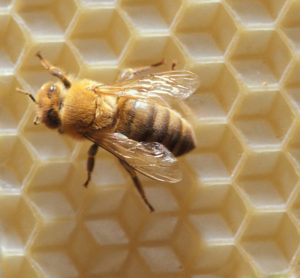Honeybee populations responsible for pollinating a third of the global food crop could be protected from massive die-offs known as colony collapse disorder by easily administered probiotics, according to Canadian researchers.
The scientists examined how the probiotic lactobaccili might counteract the toxic effects of exposure to neonicotinoid insecticides, common agricultural pesticides implicated in bee deaths. The study found the probiotic improved immunity and could potentially help honeybees to live longer after exposure to pesticides, according to researcher Brendan Daisley.
Daisley added that the bees could be given the lactobacilli in pollen patties that are already used by beekeepers to provide nutritional support and anti-pesticide effects to honeybees.
“The demise of honeybees would be disastrous for humankind,” explained Dr. Gregor Reid of Western University in London, Ontario, who participated in the study. “Until we can cease using pesticides, we need to find ways to protect humans and wildlife against their side effects. Probiotics may prove as an effective protective intervention.”
The researchers, who had used fruit flies as a well-known model for studying pesticide toxicity in honeybees, next hope to perform field tests on honeybee populations in Ontario.
